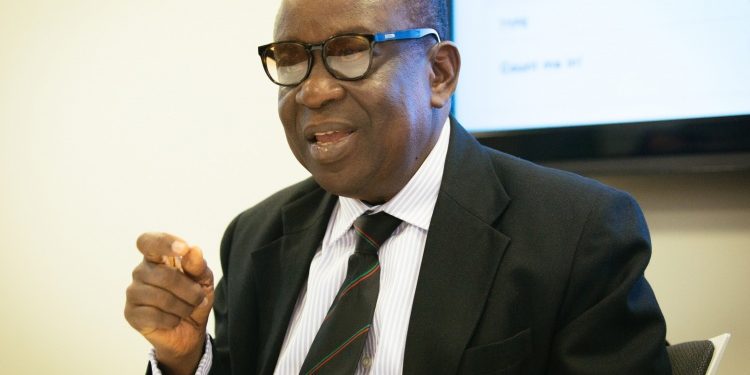National Security Minister, Mr Albert Kan-Dapaah has urged Ghanaians to embrace the E-levy proposal in the 2022 budget statement in order to help the government generate revenue for national development.
Speaking at a meeting with staff of the Ghana Revenue Authority (GRA), Mr Kan-Dpaah who is a chartered accountant by profession, noted that accepting the E-levy will be one of the sacrifices Ghanaians can make to ensure the government is able to revive the economy and also provide the much-needed public goods and services.
“The extend to which the government can tackle the socio economic problems of the country very much depends on the revenues at its disposal.
“Here in Ghana, the E-levy idea continues to divide opinions yet these are but a few of the sacrifices that the citizenry must, in my opinion, be ready to make to support the governments activity towards reviving the economy and providing much-needed public goods and public services,” he said.
Parliament passed the appropriations bill for the 2-22 budget statement without the controversial E-levy.
The Minority Leader Haruna Iddrisu had said his side in the House cannot support the proposal because they believe it is a disincentive to the growth of digital economy.
Speaking at a post budget workshop in Ho on Saturday November 20, he said “Mr Speaker, understandably, we see that the Minister of Finance seeks to introduce some measures including the now popularly declared e-levy or digital levy as some have quite named it.
“Mr Speaker, our concern is whether the e-levy itself is not and will not be a disincentive to the growth of digital economy in our country . We are convinced that the e-levy may as well even be a disincentive to investment and a disincentive to private sector development in our country. We in the minority may not and will not support government with the introduction of that particular e-levy. We are unable to build national consensus on that particular matter.”
Finance Minister Ken Ofori-Atta announced a new levy to be charged by government in 2022 on all electronic transactions to widen the tax net and rope in the informal sector.
“It is becoming clear there exists enormous potential to increase tax revenues by bringing into the tax bracket, transactions that could be best defined as being undertaken in the ‘informal economy’,” Mr Ofori-Atta observed on Wednesday, November 17 as he presented the 2022 budget statement in Parliament.
“After considerable deliberations, government has decided to place a levy on all electronic transactions to widen the tax net and rope in the informal sector. This shall be known as the ‘Electronic Transaction Levy or E-Levy’.”
He explained that the new E-levy will be a 1.75 per cent charge on all electronic transactions covering mobile money payments, bank transfers, merchant payments and inward remittances to be borne by the sender except inward remittances, which will be borne by the recipient.
This will, however, not affect transactions that add up to GH¢100 pr less per day.
“A portion of the proceeds from the E-Levy will be used to support entrepreneurship, youth employment, cyber security, digital and road infrastructure among others.”
This new levy is scheduled to start Saturday, January 1, 2022.
In 2020, total value of transactions was estimated to be over GH¢500 million with mobile money subscribers and users growing by 16 percent in 2019.
According to a Bank of Ghana report, Ghana saw an increase of over 120 percent in the value of digital transactions between February 2020 and February 2021 compared to 44 percent for the period February 2019 to February 2020 due to the convenience they offer.
This was definitely heightened by the advent of Covid-19 especially during the lockdown.







